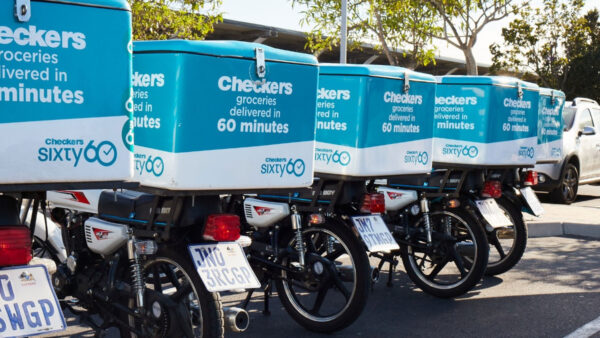Business
Big Changes Coming to Checkers Sixty60 in South Africa

Checkers Sixty60, South Africa’s leading grocery delivery platform, is poised for a significant transformation, with changes to ownership structures, driver employment practices, and safety measures.
Ownership Restructuring
Shoprite, the parent company of Checkers Sixty60, currently uses Pingo—a joint venture with RTT On-Demand—to manage last-mile logistics through a network of over 6,000 independent drivers.
However, in October, the Competition Tribunal approved Shoprite’s acquisition of full ownership and control of Pingo. This move aims to streamline operations but also places the spotlight on longstanding concerns over driver working conditions.
Driver Employment and Labour Concerns
Despite wearing Checkers branding, Sixty60 drivers are not employed directly by Shoprite or Checkers but operate as independent contractors through Pingo. Critics argue that this model allows Shoprite to distance itself from accountability for drivers’ working conditions.
Key Statistics on Driver Workforce:
- Only 23% of drivers are South African, with the majority being foreign nationals.
- Retention rates for local drivers are low, with only 8% of South African trainees retained after two years.
Shoprite has pledged to address these issues, actively recruiting local drivers and offering a 10-week training programme. However, the Department of Employment and Labour is intensifying inspections to address undocumented foreign workers, adding to the job insecurity for many drivers.
Pay Pressures and Operational Costs
Pingo drivers reportedly earn above South Africa’s minimum wage, with an average monthly income of R7,600 and a daily minimum fare of R350. However, drivers must cover significant operational costs:
- Fuel costs: Approximately R3,200 per month.
- Motorbike rental: Around R1,600 per month.
After expenses, drivers are left with a net income of just R2,800, sparking concerns over fair compensation. Pingo’s past attempts to remove the daily minimum fare have also faced backlash, highlighting the precarious nature of driver earnings.
Safety Measures and Challenges
Driving conditions for Sixty60 drivers remain a significant concern due to high accident rates on South African roads. Shoprite has implemented safety measures, including:
- Better uniforms and equipment.
- Reduced delivery speeds during adverse weather.
- Investigations into fatal accidents, with one-third deemed delivery-related.
Importantly, drivers are not incentivised for faster deliveries, aiming to reduce risks associated with high-pressure environments.
The Road Ahead
As Checkers Sixty60 undergoes these transformative changes, the focus will be on balancing operational efficiency with fair treatment and safety for its drivers. Shoprite’s increased control over Pingo offers an opportunity to address labour and safety concerns more effectively, but challenges remain in retaining local drivers and ensuring sustainable earnings.
The changes to Checkers Sixty60 reflect broader shifts in South Africa’s gig economy, highlighting ongoing debates around worker rights, safety, and fair pay. While Shoprite’s efforts are a step forward, much more needs to be done to secure a stable and equitable future for delivery drivers.















